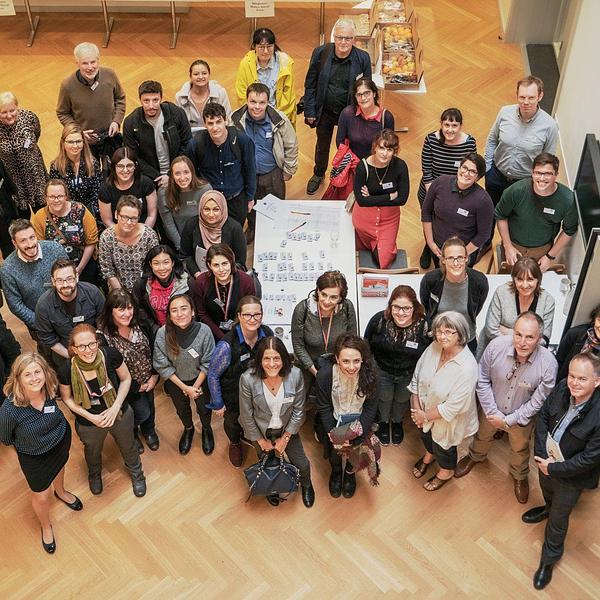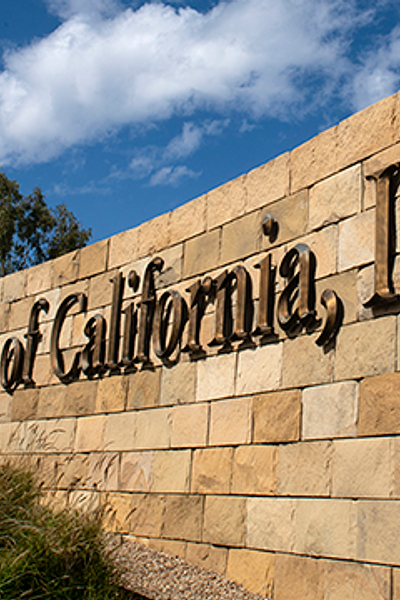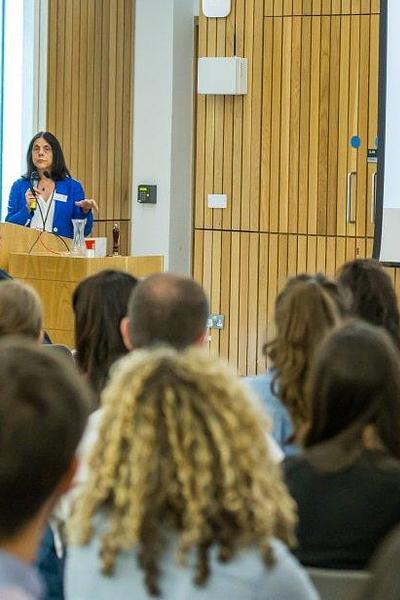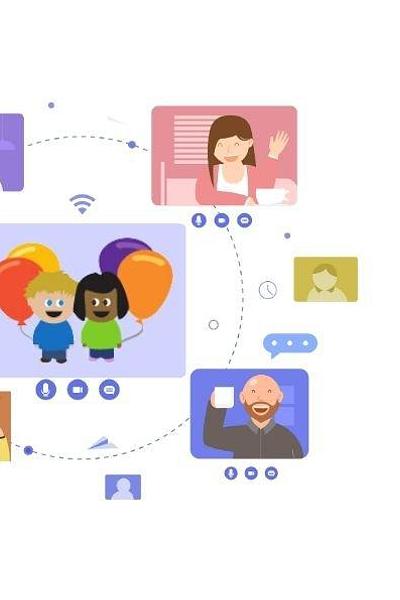
We Believe Bilingualism Matters
Find out the facts about acquiring, learning and using more than one language from experts around the world. Keep up to date with resources, events and news from our network of branches and members.
Events
View all28th, 29th and 30 April 2026
The Bilingualism Matters Symposium (BMS) is an interdisciplinary conference organised by Bilingualism Matters. It is open to researchers as well as practitioners, irrespective of their affiliation with Bilingualism Matters. The BMS aims to stimulate a productive dialogue between researchers in different academic disciplines and practitioners in different sectors of society. BMS will take place in Milan, Italy from 28th -30th April 2025

26-September-2024
To celebrate the European Day of Languages 2024, ALTE and Bilingualism Matters are inviting you to our free, online panel discussion on ‘Exploring approaches to heritage language testing’.

26-September-2024
Avant Assessment is welcoming participants with an interest in language education to a free, interactive learning session for the European Day of Languages with speakers from Bilingualism Matters and beyond

8th June 2024
In Southern California, many languages and dialects are in the air. They are spoken on their own and in mixtures in every possible form that might be imagined. Despite the naturalness of language mixing, there is a mythology that switching from one language to the other or allowing all known languages to enter into discourse is marked and not the norm. In this mini conference, we hope to begin to dispel this mythology by coming together to discuss the varied contexts in which languages are mixed. Note that this mini-conference sponsored by Bilingualism Matters in California will precede the Fifteenth Heritage Language Research Institute that will be held at UCI from June 10-June 13:

20 & 21 October 2023
Our annual interdisciplinary research conference is on again this year, with a two-day programme packed with the latest bilingualism research. The conference is held at the University of South Carolina, Columbia, USA and online. Registrations OPEN NOW.

24 May 2023
The annual BM KE Forum is an opportunity for all to meet and learn about the work led by Bilingualism Matters members across the world of research, practice and media.

11 August 2022
Online panel discussion event at Curious, the online summer events programme from The Royal Society Edinburgh.

17-May-2022
Find out about our annual event for current and prospective members of Bilingualism Matters.

30 March 2022
The official launch of our new Bilingualism Matters social enterprise on 30 March 2022.
News
View allYou can now listen to Professor Antonella Sorace describe her research on multilingualism and its real-world impact on the newest episode of the PPLS Perspectives Podcast.
Does your employer care about your wish to work multilingually? And does it matter what your co-workers think about your multilingual aspirations? A recently published sociolinguistic study explored the wish (and empty promise) of élite multilingualism in the context of EU workforce mobility.
Congratulations to Professor Antonella Sorace who has been honoured by the American Association for the Advancement of Science (AAAS)
Discover how (non-) negotiation of language choices shapes workplace dynamics in a multilingual EU institution. Our latest report is a read for those who personally experience the resulting tension and disappointment in communication, as well as for managers who care for linguistic well-being (>> talent retention) in their international teams.
Explore the Languages Gateway: a new portal for languages that connects information, resources, and opportunities on languages across the UK.
Teacher Education About Multilingualism (TEAM) project is releasing free educational resources, aimed to help educators understand and navigate the intricacies of working with multilingual pupils and in multilingual classrooms. Help us evaluate our open education resource TEAM .
What do young graduates from all over Europe learn about communication during their EU traineeship? That mutual understanding across linguistic and geopolitical borders is as important as ever. However, this does not come without effort...
Frequent and high-quality shared reading promotes language and early literacy skills in one or two languages and predicts children’s later literacy skills and academic achievement. While reading, adults may focus on letters or sounds and encourage children to read. These code-based interactions help develop letter knowledge, phonological awareness and word recognition Others may talk about the meaning of the book, connect it to the child’s experiences and clarify vocabulary. These meaning-based interactions promote the development of oral language and comprehension skills. Dialogic reading is one type of shared reading where adults encourage children to talk about pictured materials and give them feedback. The method has been successfully used in classrooms in many countries, although mainly in English-speaking countries with monolingual speakers or with children learning English. Based on research carried out on shared reading in the project COMPARE in Luxembourg, we produced guides on dialogic reading in English, German, French, Portuguese and Luxembourgish for parents and educators.
Only native-speaking teachers can properly teach a language at school.
Have you ever heard of this statement, or do you perhaps believe in it yourself?
Let’s have a closer look at the related research.
Monolingual expats often struggle to learn the language of their host country, particularly if it’s not required in day-to-day interactions. This article will explain why you should make the effort to learn the local language, as well as how it will improve your life abroad.
Find out about the MultiMind Project Final Conference and how to access free resources on multilingualism, including a fun quiz, flyers and videos on multilingualism and developmental language disorders, and policy reports for professionals.
Find out about our new Bilingualism Matters social enterprise and how to get involved.
Bilingualism Matters Edinburgh has teamed up with educational platform Twinkl and SCILT to create a range of free resources on bilingualism for teachers to use in English and Gaelic speaking classrooms.
BM Luxembourg launches TRANSLA - a new program for multilingual children - with resources for teachers and parents in English, French and German
A BM Edinburgh project aiming to inspire local Edinburgh communities to connect with languages has won the Collaboration Award at the recent Creative Edinburgh Awards.
Young children only learn written language at school, right? Not really. Children’s first print experience at home matters...
Find out about our affiliate meeting at the Psychonomic Society Annual Meeting, taking place on on 4th November 2021.
Knowable Magazine hosts a fascinating discussion on bilingualism, the brain and society with Dr. Uju Anya and Dr. Judith Kroll, who talks about plans for a new BM branch at UC Irvine in the USA.
Do you apologise for your poor foreign language skills in multilingual encounters? Find out about the hidden social effects of this common monolingual practice.
Bilingualism Matters is working in partnership with UNESCO on the Futures of Education initiative. Find out about about latest developments and reports.
